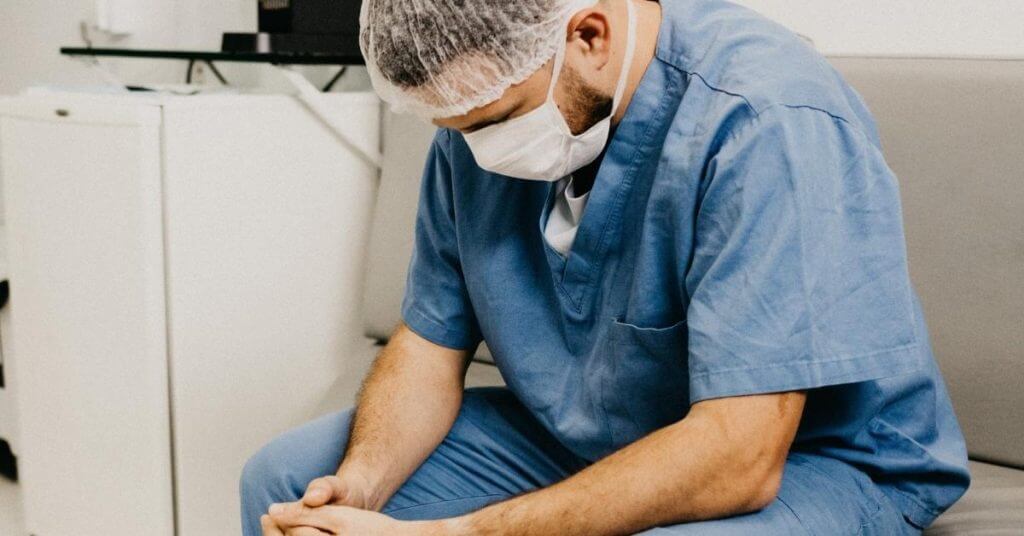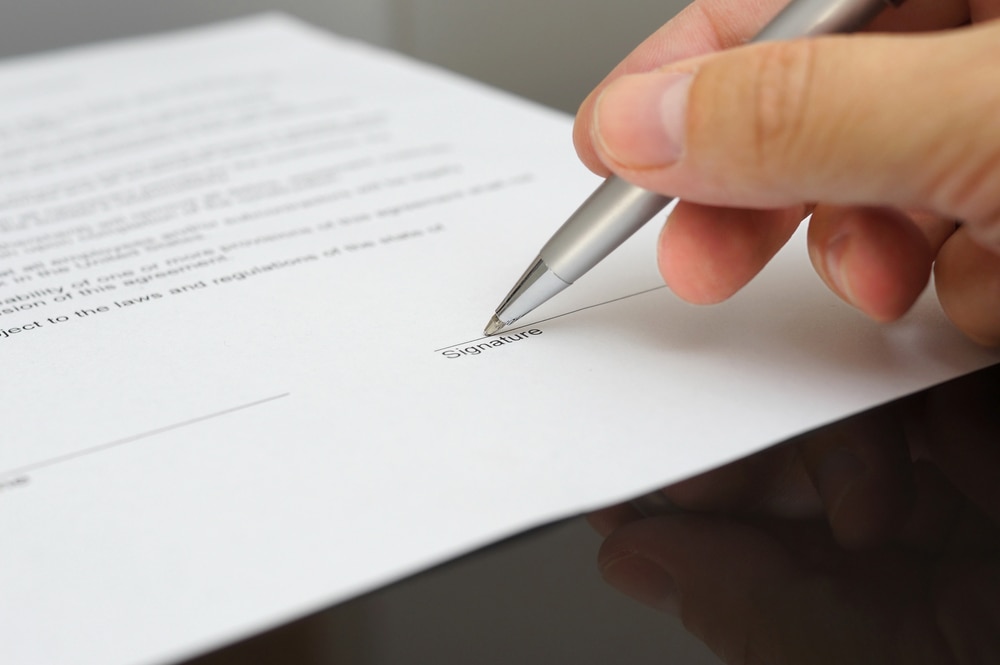Every Australian has a right to the highest level of care and professionalism when they need medical assistance. In this country, we are fortunate to have skilled healthcare professionals – but sometimes things can go wrong.
Each year, a small number of people suffer physical, mental or emotional harm or loss due to medical negligence. The short-term and long-term effects can be devastating for the injured party and their family. They may be unable to work temporarily or permanently and suffer ongoing pain and you may be wondering do you have a medical negligence claim?
If you believe that you have suffered this type of injury, harm or loss due to a medical professional, you might be eligible to make a medical negligence claim. This can be a complex process, as you must prove that:
- the professional had a duty of care toward you
- you were harmed or injured, or a pre-existing condition was worsened
- the professional directly caused the injury or harm through negligence.
The best way to start is to get expert legal advice. Our medical negligence lawyers can collect all the necessary details and tell you whether you have a case. Then we can work to get you everything you’re entitled to.

What is duty of care?
To prove a medical negligence claim, you must prove that the person you believe harmed you had a duty of care towards you.
Medical professionals are expected to provide a superior standard of care to patients because of their training, knowledge and skill. This includes doctors, nurses, surgeons, chiropractors, dentists and others with medical training.
To determine whether a medical professional has breached their patient duty of care, a court would ask whether ‘a reasonable person’ could have foreseen the risk of injury and how they would have responded.
If the court determines that the risk was foreseeable and a reasonable person would have taken steps to prevent it, the healthcare professional probably breached their duty of care.
What is medical negligence?
Medical negligence refers to when a medical professional causes a patient injury or loss through a lack of reasonable care. This could occur in a hospital, GP clinic, aged care facility or anywhere else where you might get treatment from a medical specialist.
To prove that medical negligence has occurred, you must show that:
The medical professional did not behave in a way that another competent medical professional would in the same situation
The behaviour caused injury, loss or a worsening of an existing condition.

This ‘causation’ is vital in proving medical negligence. It’s not enough to show that the professional had a duty of care – you must prove that the injury or harm would not have occurred if they had not been negligent. In other words, your injuries were directly caused by their behaviour.
Examples of medical negligence causing harm might be:
- procedures performed on incorrect parts of the body or the wrong person
- errors in prescribing medicine, such as the wrong type or amount
- not providing warnings about side effects of medication or risks of procedures
- misdiagnosis or lack of diagnosis of a condition
- dental malpractice
- delays in communication about test results
- negligence in aged care facilities
- mistakes during births or prenatal care
- plastic or cosmetic surgery malpractice.
Proving ‘causation’ can be the most complex part of a medical negligence claim. Therefore, it’s always best to get professional legal assistance first. At Main Lawyers, our medical negligence lawyers have years of experience in these types of claims.
Making a medical negligence claim
The first important step in a medical negligence claim is to record everything you know and can remember about the treatment that led to your injury or harm. This includes:
- any paperwork you signed
- tests and medicine prescriptions provided
- conversations you had with the professional
- the behaviour that you felt led to your injury or loss.
No matter how small a detail, make sure you write it down, as it could be important later. When you work with us, we can engage medical experts to conduct assessments, review medical records and provide expert reports outlining how they believe your treatment was negligent. This type of evidence will be crucial in proving your claim.
In Queensland, there are a number of steps and strict time frames for making a claim for medical negligence:
Step 1
You need to notify the relevant medical professional about the claim in writing. This notice needs to include a description of what you believe occurred, when and where it occurred, and the injury or harm you sustained as a result.
Step 2
The medical professional (or their lawyer or insurer) has 1 month to respond to you in writing providing you with any documents they hold.
Step 3
You then have 12 months to provide a notice of claim. This will include a report by an independent specialist stating that they believe the medical professional failed in their duty of care and why they believe this caused your injury or loss.
Step 4
The medical professional has 1 month to accept or reject your claim.
Step 5
Within 6 months, the medical professional must notify you in writing about whether they accept or deny liability. If you have made a settlement offer, they will inform you whether they accept or reject it. They may make an offer or counter settlement offer.
Claims for close family members
You might also be able to claim compensation for medical negligence if a close member of your family is harmed through the negligence of a medical professional. You might claim for the cost of caring for that person in the short or long term, and pain and suffering caused by the event.
If the close family member is a child, the process and the time frames will be a little different. In this case, you need to provide a notice of your claim for medical negligence compensation within either:
- 6 years of finding out (or should reasonably have known) that the injury or harm occurred
- 18 months of meeting with a lawyer about making a claim.
The medical professional might give you a ‘notice of an adverse event’ where they offer to remedy the harm or injury the child has suffered due to the incident and/or express their regret for the incident. It’s important to know that this is not an admission of guilt or liability and is not admissible in court. You may also be able to claim for death due to medical negligence.
Why medical negligence claims take time
As you can see, medical negligence claims can take up to 2 years to resolve because of the many complexities involved. There may have been many medical treatments or medical specialists involved, so figuring out which may have caused the injury or harm will take time.
Additionally, medical experts may offer different opinions of the same event, which can cause extra complexity. And the court needs to figure out whether you would have had the treatment if you had known the risk, and whether the injury was definitely caused by medical negligence and wasn’t a pre-existing condition.
Of course, not every case goes to court – many are resolved a lot faster through mediation. If mediation fails or isn’t possible and the case does go to court, the time frame could be a lot longer.

Damages for medical negligence claims
The amount and form of damages you can receive for a medical negligence claim varies for every case. Generally, you could receive financial compensation for:
- additional medical costs you have incurred
- a lump-sum payment for pain and suffering, and quality of life
- loss of wages if you are unable to earn a living as a result.
After examining your case, our medical negligence lawyer can give you a better idea of what you might be able to receive in your case.
Who pays the compensation for medical negligence?
Medical professionals, or their hospital or medical practice, usually take out medical indemnity insurance to cover themselves against the risk of this type of event. It might pay their legal costs and any damages awarded to their patient after a negligence claim.
So if your claim is more likely to be paid by the professional’s insurance company than the specialist themselves directly.
What if I signed a waiver?
Sometimes a medical professional may ask you to sign a document waiving your right to sue them for negligence. However, these waivers will not necessarily hold up a court. Other questions need to be asked about whether there was an inherent risk of the procedure, whether there was a duty of care over and above this and whether negligence caused the injury or harm.
If you have suffered an injury or harm during a medical procedure or treatment after signing a waiver, you should seek professional legal advice to determine your options.

How can Main Lawyers help?
No matter the situation, proving that a healthcare professional has been negligent is always challenging and a complex area of law. Our Medical lawyer has years of direct experience in the medical industry, which is why at Main Lawyers we’re experts in medical negligence claims.
Do you have a medical negligence claim? Get in touch with one of our expert medical negligence lawyers for an obligation-free consultation, and we will make sure you get what you are entitled to.

